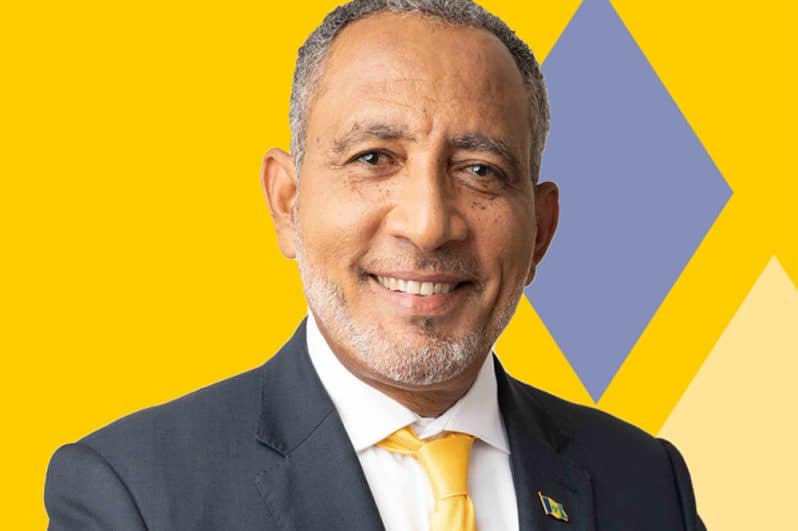
CLICK HERE TO JOIN OUR WHAT’S APP GROUP
By Dr. Isaac Newton
In the stillness that followed the election, Ralph Gonsalves’ single surviving seat felt less like a victory and more like a solitary echo from a fading era.
Twenty four years in office had stretched the limits of public patience, and the country’s quiet hunger for renewal finally spoke in unmistakable terms.
The call for transition was not hidden. It was visible in drifting supporters, weary faces, and the simple question lingering in every community: What more could truly be offered after a quarter century of the same voice at the helm?
The result was not just a loss. It was the public’s firm declaration that leadership must remain rooted in awareness, not memory.
The ULP’s unraveling did not happen overnight. It grew in the gap between the party’s internal culture and the country’s evolving needs.
When a political movement stops thinking, stops questioning itself, and stops grooming new leaders, it becomes fragile long before the ballots are cast.

Treating politics as an extension of personal legacy rather than a living partnership with the people created a disconnect that no speeches could repair. The defeat, therefore, was not surprising. It was the natural outcome of a leadership style that treated continuity as a strategy and familiarity as a plan.
Even so, the moment carries potential.
Renewal begins with the simple act of listening without defensiveness.
It requires conversations in homes, markets, church halls, and bus stops, not to reclaim power but to understand what the country is truly becoming.
Fresh leadership must be cultivated with the discipline of mentorship and the courage to allow younger voices to shape new directions. Real solutions emerge when a party studies the present instead of rehearsing its past, taking the time to gather evidence, understand trends, and design policies that respond to lived experiences rather than assumptions.
Rebuilding the Opposition will demand structure, curiosity, and intellectual honesty.
A reformed Opposition must start by assembling a broad national advisory group capable of producing ideas that matter: economic relief frameworks, community safety initiatives, youth employment pipelines, and modern governance standards.
The party must invest in training organizers, communicators, and researchers who can engage the public with clarity and respect.
Most importantly, it must show through consistent action that it values transparency, genuine debate, and shared leadership.
Only then can the Opposition grow into an institution the country takes seriously, not because of its past, but because of the future it is willing to design with discipline and imagination.
EDITOR’S NOTE: Dr. Isaac Newton is a strategist and scholar trained at Harvard, Princeton, and Columbia. He advises governments and international institutions on governance, transformation, and global justice, helping nations and organizations turn vision into sustainable progress.
CLICK HERE TO JOIN OUR WHAT’S APP GROUP
CLICK HERE TO JOIN OUR WHAT’S APP GROUP
CLICK HERE TO JOIN OUR WHAT’S APP GROUP
CLICK HERE TO JOIN OUR WHAT’S APP GROUP
CLICK HERE TO JOIN OUR WHAT’S APP GROUP
CLICK HERE TO JOIN OUR WHAT’S APP GROUP
CLICK HERE TO JOIN OUR WHAT’S APP GROUP
CLICK HERE TO JOIN OUR WHAT’S APP GROUP
CLICK HERE TO JOIN OUR WHAT’S APP GROUP
CLICK HERE TO JOIN OUR WHAT’S APP GROUP
CLICK HERE TO JOIN OUR WHAT’S APP GROUP
Advertise with the mоѕt vіѕіtеd nеwѕ ѕіtе іn Antigua!
We offer fully customizable and flexible digital marketing packages.
Contact us at [email protected]
















“God win” on Friday. No one can doubt the enormous contribution of Dr. Ralph Gonsalves to St.Vincent and the Grenadines and to the region. His biggest mistake was not knowing when to quit. Succession planning is a vital part of the political landscape. It obviously eluded him as his quest for power was greater than allowing for younger and more dynamic leadership. So he took the “boat” down with him.
@ Newton,
Your interest would be better served if you created a literary journal. Your writing style and subject matter are irrelevant to most of Antigua and Barbuda as well as Tge Caribbean readers interests.
Further there are so many things which plaques the Caribbean. One among many is the lack of vision.
So where is the sustainable progress coming from when there is a lack of vision, organizational talent, knowledge and accountability.
Spear us the rhetoric. That’s for UWI grads.
How can you be an advocate advising or consulting Governments or political parties with the continuous dribble?
You are a classic example of what plagues the Caribbean. Individuals who become credential rich, with no valuable or useful skills.
The Hurricane Mellisa offers so much opportunity to learn and implement from its widespread destruction.
The Caribbean offers opportunities for individuals with your credentials; but do you have the know how?
The Caribbean needs practitioners and implementers. Not theoreticians
With theory only, they get lost. Such Antigua and Barbuda taking it’s contradictory approach to fossil fuel.
On one hand Antigua sends a large delegation and takes a visible advocacy position in the reduction in fossil fuel use; when at the same time at home it is actively involved and promotes the new LPG terminal.
Dr. Newton as a scholar in Global Justice as Antigua and others in SIDS pursue debt forgiveness you should be at the forefront syntactically exploring this issue.
Your Alma Mater Harvard walk way from the promise made to Antigua and Barbuda.
The former President of Harvard University stepped down from his teaching roles as well as from his board position on ChatGBT.
Here is a consulting opportunity for you, to bring him to UWI Five Islands remotely.
Comments are closed.